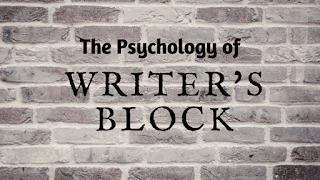I want to talk about the dreaded realm of the tortured artist: Writer's Block. Anyone who calls themselves a writer has experienced it. Your coffee is hot and your fingers are poised over the keyboard. The cursor flashes black in a sea of white. All those ideas that were rushing around while you were trying to get to sleep are gone. Your mind is completely blank.
What is writer's block?
Writer's Block is defined as the condition of being unable to think of what to write or how to proceed with writing. I love the quote by Thomas Mann; “A writer is someone for whom writing is more difficult than it is for other people.” So what makes it harder for us writers?
Fear of criticism
Writers are inherently sensitive people. They have to feel things deeply to be able to write about them in a way that feels relatable to other people. It follows that they will think deeply about others' attitudes towards their work.
In my experience, it is not a lack of inspiration or creativity that is the problem with writer's block. Rather, I would argue it is a side effect of anxiety or low self-esteem. It is the fear of your writing being judged badly, either by others or by yourself. Humans are wired to avoid threats, in order to keep out of danger. If the thought of your work being read brings you out in a cold sweat, your brain will avoid the task of writing.
Perfectionism
Jean De La Fontaine was a prolific author and poet of the 17th century. He is most well known for his Fables, which are still very famous in France. Yet, he was not immune to the challenges of writing. He stated, "Un auteur gâte tout quand il veut trop bien faire." I would translate this as 'An author spoils everything when he wants to do too much.'
A writer will always be disappointed, if they expect the first draft to be perfect. It is called a draft because it is there to be rewritten, edited, polished and scrubbed. Published authors have a team of people removing errors and pointing out plot holes. Wouldn't it be interesting to see the first drafts of some of those bestsellers?
The Answer
If Writer's Block is a symptom of fear, then it can be vanquished with some basic techniques. Mostly, free writing or writing thoughts without structure avoids that annoying inner critic. Writing sprints can be helpful for creating urgency. If that fails, I write another part of my book or a completely different short story. I might move my laptop outside or spend some time working in a café. A change is as good as a holiday and all that. Next, I flick through favourite novels by an author who inspires me. If the words still won't come, at least I can curl up with a good book and fall into another world.
Have you experienced writer's block? What do you do to overcome it?
Kim writes historical fiction set in 18th century France (when she is winning). Otherwise, she travels, blogs and reads anything and everything.
Website: http://www.writersideoflife.
Twitter: https://twitter.com/
Pinterest: https://pinterest.nz/
--
Thank you to Kim for writing this guest post, I found it very interesting!


No comments:
Post a Comment